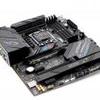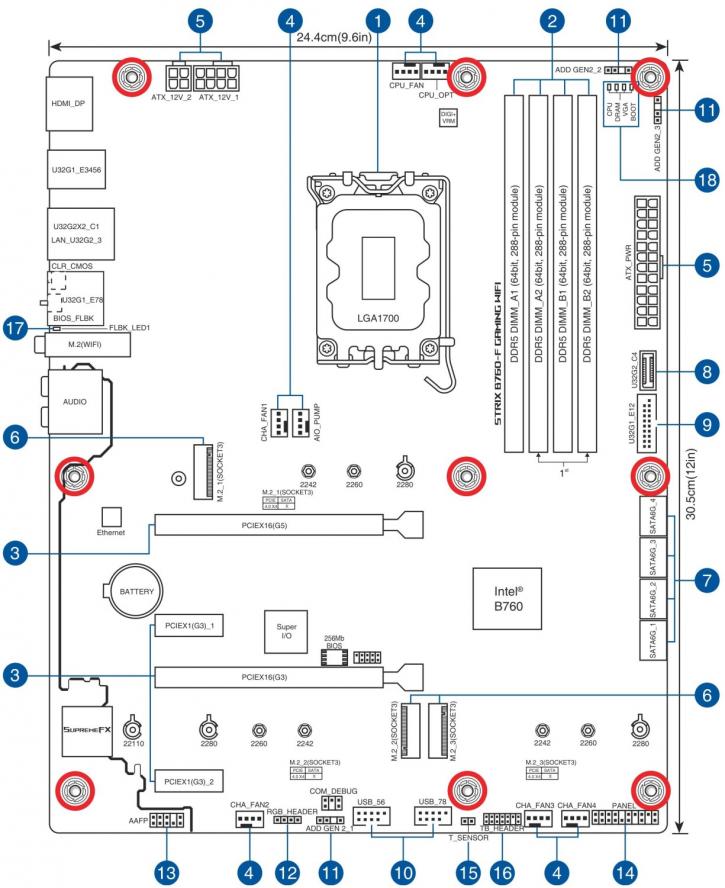The platform
B760 Chipset
Intel has recently announced the release of the B760 chipset, a new addition to their Raptor Lake lineup. This new chipset is aimed at providing a balance of performance and features for mainstream and budget-conscious consumers. The B760 chipset is designed to work with Intel's 12 and 13th-generation processors, including the Core i5 and i7 series. The B760 chipset is built on the LGA1700 socket, which is the same socket used by the previous generation B660 chipset. This means that consumers who already have an LGA1700 motherboard will be able to upgrade without having to purchase a new motherboard. However, the B760 chipset only supports PCIe 4.0, so users with older motherboards will need to purchase a new one. One of the most notable features of the B760 chipset is its support for PCIe 4.0 yet also 1x x16 PCIe Gen 5.0 slot. PCIe 5.0 is the latest version of the PCI Express standard and provides double the bandwidth of PCIe 5.0. This means that the B760 chipset can provide faster data transfer speeds for devices such as NVMe SSDs and graphics cards. This feature is particularly beneficial for gaming and content creation, where high-speed data transfer is crucial for smooth performance.
| Z790 | H770 | Z690 | B760 | B660 | |
|---|---|---|---|---|---|
| DMI 4.0 channel | x8 | x8 | x8 | x4 | x4 |
| PCIe 4.0 | 20 | 16 | 12 | 10 | 6 |
| PCIe 3.0 | 8 | 8 | 16 | 4 | 8 |
| USB 3.2 Gen 2x2 (20 Gbps) | 5 | 2 | 4 | 2 | 2 |
| USB 3.2 Gen 2 (10 Gbps) | 10 | 4 | 10 | 4 | 4 |
| USB 3.2 Gen 1 (5 Gbps) | 10 | 8 | 10 | 6 | 6 |
| USB 2.0 | 14 | 14 | 14 | 12 | 12 |
| SATA 3.0 | 8 | 8 | 8 | 4 | 4 |
The B760 chipset can support up to four SATA 3.0 drives, which is half as much as the Z790 chipset. This should not be too much of a problem, though, because most of the better SSDs (and thus the motherboards that support them) use the PCIe interface. Fans of storage space might consider the Z790 or H770 chipset, which each have up to eight SATA 3.0 connectors.
Intel’s chipset portfolio also includes the Intel H770 chipsets that, when paired with Intel’s 13th Gen Intel Core desktop processors deliver dynamic capabilities and accelerated connectivity. Both chipsets support memory overclocking1 but offer distinct I/O and PCIe processor configurations. The H770 chipset accelerates multi-tasking with greater data throughput capabilities of up to 16 PCIe 4.0 lanes, 8 PCIe 3.0 lanes, bifurcation of the CPU PCIe lanes, and support for SATA and PCIe RAID. The B760 brings up to 10 PCIe 4.0 lanes and 4 PCIe 3.0 lanes for the speed and performance to power modern work needs. Choose the features you need to get the most from your everyday gaming, creating, and productivity.


